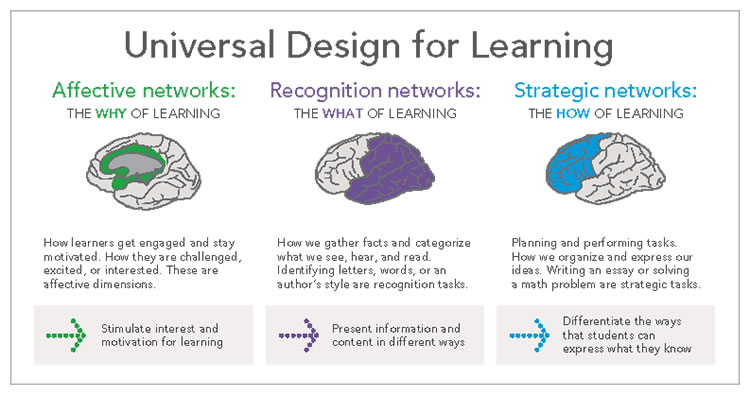"UDL is a research-based framework for guiding educational practice based on the premise that one-size-fits-all curricula create unintentional barriers to learning for many students, including the mythical average student. UDL focuses on planning instruction in such a way to meet the varied needs of students. Not a special education initiative, UDL acknowledges the needs of all learners at the point of first teaching, thereby reducing the amount of follow-up and alternative instruction necessary". ELA/ELD Framework, Ch. 9, p. 910
Universal Design for Learning is organized by three principles -
Engagement,
Representation, and
Action and Expression. Each of these three principles have three guidelines within them.
The principles and guidelines of UDL are based on neuroscience research and this research guides and provides the underlying framework for UDL. Each principle calls for teachers to provide multiple means of engagement, representation, and action and expression to help all students access the rigorous curriculum we are presenting.
UDL Resources and Links:
CAST-
http://www.cast.org/
Video: "UDL At a Glance" -
http://www.udlcenter.org/aboutudl/whatisudl/conceptofudl
National Center on Universal Design for Learning -
http://www.udlcenter.org/


